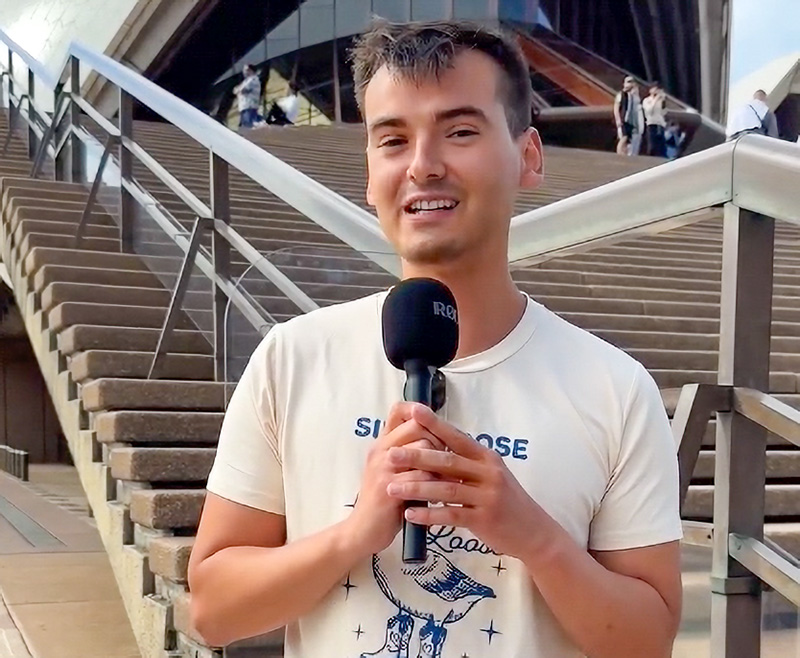Senate Sex Scandal: Staffer Fired After Explicit Video
What happens when the hallowed halls of power become the backdrop for a scandal that shakes the very foundation of public trust? The sanctity of the Senate, a place where laws are crafted and the nation's future is debated, has been violated in the most unthinkable way imaginable. A leaked video depicting two men engaged in a sexual act within a Senate hearing room has ignited a firestorm of controversy, raising questions about security breaches, ethical misconduct, and the potential consequences for those involved.
The explicit footage, which quickly spread across the internet, allegedly shows a former Senate staffer and an unidentified man engaging in anal sex on a table within the Judiciary Hearing Room. This room, typically reserved for solemn deliberations and the questioning of witnesses, became the scene of an act that has left many stunned and disgusted. The Daily Caller, a conservative news outlet, first obtained and published the video, further fueling the already raging debate. The grainy footage, reportedly filmed on a Friday, appears to depict unprotected sex, adding another layer of concern to the already complex situation. The individual identified as the former staffer reportedly self-identifies as a "twink," a term used to describe a young, slender man, often in the context of gay subculture. This detail, while seemingly irrelevant to the core issue, has been seized upon by some online commentators, further contributing to the sensationalized nature of the story.
| Name: | [Redacted - Name of Former Staffer - Pending Official Confirmation and Ethical Considerations] |
| Position: | Former Senate Staffer |
| Senate Office: | [Redacted - Specific Senate Office - Pending Official Confirmation and Ethical Considerations] |
| Date of Incident: | Friday (Specific date redacted pending further investigation) |
| Location: | Senate Judiciary Hearing Room, United States Capitol Building, Washington D.C. |
| Source: | United States Senate |
The fallout from this shocking incident has been swift and severe. The staffer in question was immediately terminated, and the Senate Sergeant at Arms, responsible for the security of the Capitol complex, has launched a full investigation. The incident raises serious questions about how such a blatant breach of security could occur within the supposedly secure confines of the Senate. Was this a lapse in protocol? A failure of surveillance systems? Or something more deliberate? These are the questions that investigators are now scrambling to answer.
Beyond the immediate security concerns, the incident has sparked a wider debate about the ethical conduct of those entrusted with public service. While the staffer's actions are undoubtedly inappropriate and reprehensible, some argue that the focus should be on systemic issues rather than individual failings. Is there a culture within the Senate that allows such behavior to flourish? Are there adequate safeguards in place to prevent future incidents? These are complex questions that demand careful consideration.
The video's release has also ignited a heated discussion about privacy and the role of the media. While the public has a right to know about potential misconduct by government officials, some argue that the distribution of such explicit material is gratuitous and exploitative. The Daily Caller's decision to publish the video has been met with both praise and condemnation, with some accusing the outlet of sensationalizing the story for political gain. Others argue that the publication serves as a necessary check on power, holding those in positions of authority accountable for their actions.
This scandal unfolds against a backdrop of increasing political polarization and public distrust in government. The incident has become fodder for both sides of the political spectrum, with each side using it to advance their own agendas. This further complicates an already sensitive situation, making it more difficult to have a reasoned and productive conversation about the underlying issues. The investigation into this incident is ongoing, and the full extent of the ramifications remains to be seen. However, one thing is certain: this scandal has left an indelible stain on the reputation of the Senate, raising serious questions about security, ethics, and the very nature of public service in the 21st century.
Furthermore, the specific location of the act, the Senate Judiciary Hearing Room, adds a layer of symbolic significance. This is the very room where Supreme Court nominees are vetted, where weighty legal matters are debated, and where decisions that shape the nation's laws are made. The act itself, therefore, can be interpreted as a desecration of this symbolic space, a profound disrespect for the institution of the Senate, and the rule of law it represents.
The incident also highlights the increasing pervasiveness of technology and its potential for both good and ill. The ease with which the video was captured and disseminated underscores the challenges of maintaining privacy in the digital age. It also raises questions about the ethical responsibilities of those who possess such material. Should they share it with the public? Or are there circumstances where discretion is warranted? These are complex questions with no easy answers.
Finally, this incident serves as a stark reminder of the human element in politics. Behind the polished facades of power and authority, there are individuals with flaws and vulnerabilities. While this in no way excuses the behavior in question, it does underscore the importance of promoting a culture of accountability and ethical conduct within all branches of government. Only through such efforts can we hope to restore public trust and ensure that the institutions of our democracy remain strong and resilient in the face of such challenges.

'Senate Twink' Aidan Maese Czeropski breaks silence on sex scandal

"Senate Twink" Says Video Sex Scandal Drove Him to Flee U.S. Metro Weekly

'Senate twink' finally addresses gay sex video scandal